Introduction:
In an increasingly competitive job market, continuous learning is vital to stay ahead. Online learning platforms like Udacity and LinkedIn Learning have become popular for acquiring new skills, particularly in tech and professional development. Both platforms offer different strengths, catering to specific audiences. This detailed comparison of Udacity and LinkedIn Learning will help you understand which platform aligns best with your career and educational goals.
Overview of Udacity and LinkedIn Learning
Udacity Overview:
- Nanodegree Programs: Udacity is best known for its Nanodegree programs, which are project-based, career-focused courses. These programs are developed in collaboration with leading companies like Google, IBM, and Amazon, ensuring that the skills you learn are relevant in the current job market.
- Project-Based Learning: Every Nanodegree program comes with hands-on projects, allowing learners to apply their knowledge to real-world scenarios. This method ensures that students are job-ready by the time they finish their courses.
- Mentorship and Career Services: Udacity offers one-on-one mentorship and personalized career services like resume reviews, LinkedIn profile optimization, and interview coaching. The focus is not just on learning but also on transitioning into a tech career.
[button-red url=“https://digitalmarketerr.com/recommends/udacity/” target=”_blank” position=”center”]🔥Try Udacity Now[/button-red]
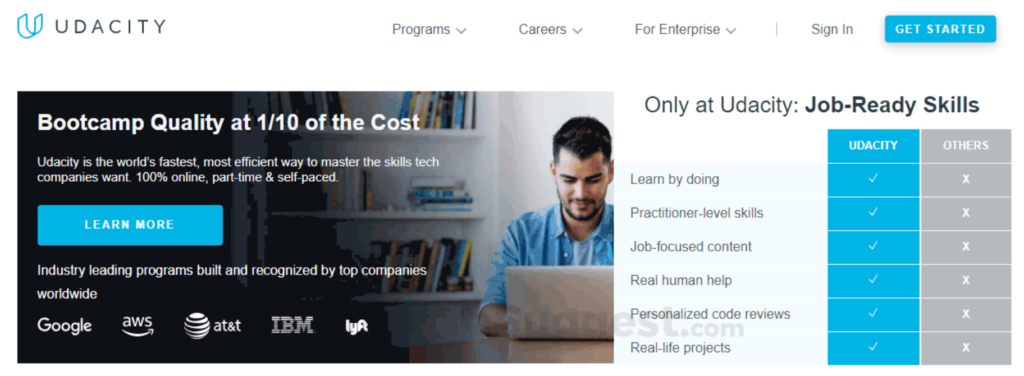
LinkedIn Learning Overview:
- Self-Paced Learning: LinkedIn Learning offers a vast library of courses (over 16,000) on a wide range of topics, including technology, business, creative fields, and soft skills like leadership and communication. Most courses are video-based and allow users to learn at their own pace.
- Skills Development and Assessment: Unlike Udacity’s project-based approach, LinkedIn Learning focuses more on consuming content through videos and quizzes. The platform emphasizes skills development in areas relevant to professional growth, such as project management, public speaking, and technical certifications.
- Certificates and LinkedIn Integration: LinkedIn Learning’s standout feature is its seamless integration with LinkedIn profiles. Upon completion of a course, users can add certificates directly to their profile, making it easy for recruiters to see your skills.
[button-red url=“https://learning.linkedin.com/” target=”_blank” position=”center”]🔥Try LinkedIn Learning Now[/button-red]

Features of Udacity and LinkedIn Learning
Udacity Features:
- Udacity specializes in tech-centric courses, such as data science, artificial intelligence, cloud computing, machine learning, programming, and cybersecurity.
- The platform is designed for learners who want deep expertise in a specific field, often resulting in a career change or significant career advancement.
- Udacity’s partnerships with top tech companies mean that its curriculum is often aligned with current industry needs.
[button-red url=“https://digitalmarketerr.com/recommends/udacity/” target=”_blank” position=”center”]🔥Try Udacity Now[/button-red]
LinkedIn Learning Features:
- LinkedIn Learning has a much broader focus, offering courses in business, marketing, leadership, graphic design, creative skills, and technology.
- Courses are typically shorter and cover a wide range of skills, from technical topics like coding and software development to soft skills like emotional intelligence and leadership.
- The platform is ideal for professionals who want to continuously develop and improve their skills across various domains, not just tech.
Target Audience:
Udacity:
- Best For: Udacity is ideal for learners who want to specialize in tech fields and are looking for a career shift or advancement. Its intensive programs are perfect for those willing to invest time and money into a structured, mentor-driven learning experience.
LinkedIn Learning:
- Best For: LinkedIn Learning is suited for professionals who are looking for continuous personal development across a wide range of fields. The platform is perfect for those who need flexible, on-demand learning and are more focused on improving soft skills or gaining additional professional certifications.
[button-red url=“https://learning.linkedin.com/” target=”_blank” position=”center”]🔥Try LinkedIn Learning Now[/button-red]
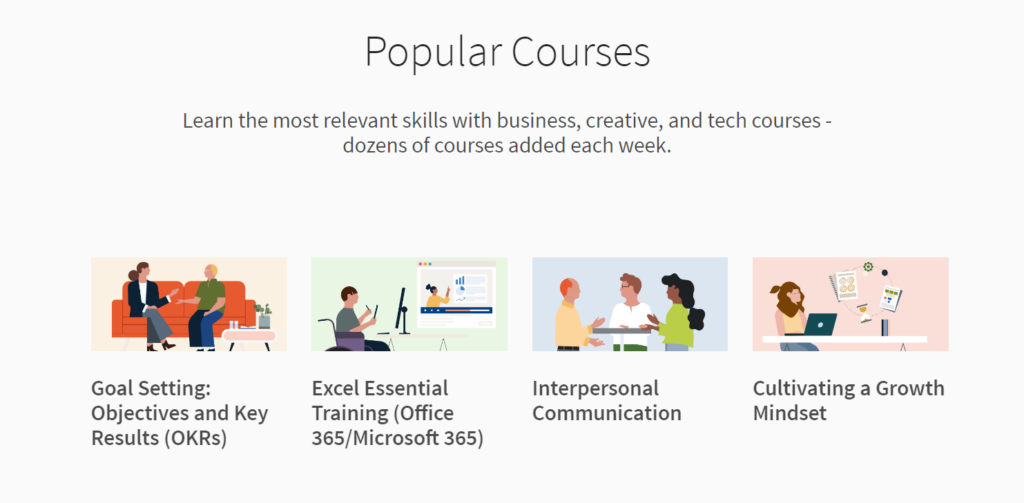
Learning Support:
Udacity:
- Offers one-on-one mentorship, giving learners the ability to ask questions, receive feedback on projects, and gain career advice.
- Career services are included, helping learners prepare for job interviews, optimize resumes, and boost LinkedIn profiles.
[button-red url=“https://digitalmarketerr.com/recommends/udacity/” target=”_blank” position=”center”]🔥Try Udacity Now[/button-red]
LinkedIn Learning:
- Primarily video-based learning with no direct mentorship or personalized career services.
- Offers discussion forums and learning groups, but the platform is more focused on individual learning rather than direct support.
Pros and Cons:
Udacity Pros:
- Project-based learning ensures students gain real-world experience.
- Mentorship and career services are top-notch, making it a good choice for those seeking career shifts.
- Focus on in-demand tech fields means Udacity’s courses are highly relevant to job markets.
Udacity Cons:
- Expensive compared to other platforms.
- Time-intensive, requiring significant commitment.
- Limited variety of courses outside of tech fields.
[button-red url=“https://digitalmarketerr.com/recommends/udacity/” target=”_blank” position=”center”]🔥Try Udacity Now[/button-red]
LinkedIn Learning Pros:
- Affordable subscription model with a wide range of courses.
- Courses cover both technical and soft skills, ideal for well-rounded professional development.
- Seamless LinkedIn integration makes it easy to showcase certifications to recruiters.
- Flexible, on-demand learning suitable for busy professionals.
LinkedIn Learning Cons:
- No mentorship or project-based learning.
- Completion certificates are not as prestigious as Udacity’s Nanodegrees.
- More focused on general skills rather than deep specialization.
[button-red url=“https://learning.linkedin.com/” target=”_blank” position=”center”]🔥Try LinkedIn Learning Now[/button-red]
Certifications:
Udacity Certifications:
- Udacity offers Nanodegree certifications, which are recognized by tech companies and can enhance your employability in specialized fields like data science or machine learning.
- Nanodegree certifications are highly valued by employers due to their project-based nature, ensuring that students have practical, hands-on experience.
[button-red url=“https://digitalmarketerr.com/recommends/udacity/” target=”_blank” position=”center”]🔥Try Udacity Now[/button-red]
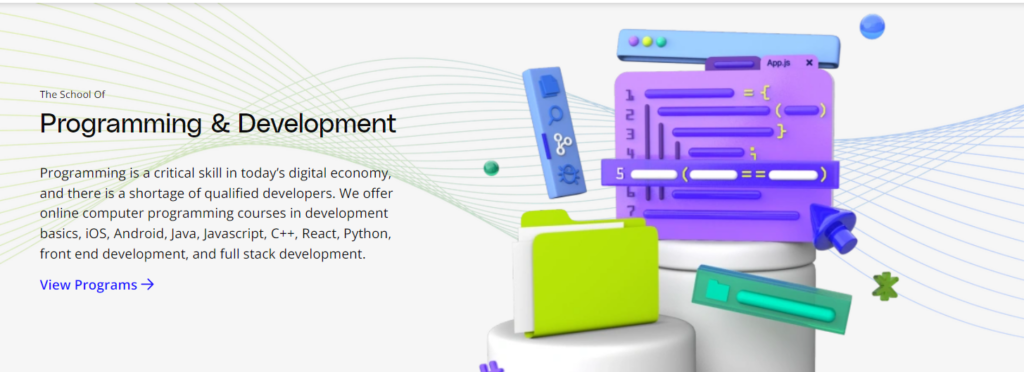
LinkedIn Learning:
- LinkedIn Learning provides completion certificates for each course. While these certificates are not as specialized or prestigious as Udacity’s Nanodegrees, they are easy to add to your LinkedIn profile, which can boost visibility to potential employers.
- LinkedIn Learning’s certifications are widely recognized for professional development but may not carry the same weight in specialized technical fields.
[button-red url=“https://learning.linkedin.com/” target=”_blank” position=”center”]🔥Try LinkedIn Learning Now[/button-red]
Pricing of Udacity and LinkedIn Learning
Udacity Pricing:
- Nanodegree Programs: Udacity offers premium pricing, with most Nanodegree programs costing between $399 and $799 per month, depending on the duration and complexity of the course.
- The price includes access to mentors, career services, and graded projects. There are sometimes scholarships and discounts available, but overall, Udacity is more expensive than LinkedIn Learning.
LinkedIn Learning Pricing:
- Subscription Model: LinkedIn Learning offers a more affordable subscription-based pricing model.
- Monthly Subscription: $29.99 per month.
- Annual Subscription: $239.88 per year (equivalent to $19.99 per month).
- A LinkedIn Premium subscription also includes LinkedIn Learning access, offering both platform access and networking tools for job seekers.
Frequently Asked Questions (FAQ)
What are the key differences between Udacity and LinkedIn Learning?
Udacity focuses on project-based, intensive learning in tech fields like data science, AI, and programming, offering Nanodegree certifications recognized by employers.
LinkedIn Learning offers a broader range of courses across business, leadership, creative skills, and technology, with self-paced video learning and completion certificates.
Which platform offers better certifications?
Udacity provides Nanodegree certifications, which are highly regarded in the tech industry and recognized by top employers.
LinkedIn Learning offers course completion certificates that can be added to your LinkedIn profile, but they are not as prestigious as Udacity’s Nanodegrees.
What is the pricing difference between Udacity and LinkedIn Learning?
Udacity is more expensive, with Nanodegree programs ranging from $399 to $799 per month.
LinkedIn Learning offers an affordable subscription model, costing $29.99 per month or $239.88 annually (around $19.99 per month with an annual plan).
Which platform is better for learning tech skills?
Udacity is better for those seeking in-depth, hands-on learning in specialized tech fields like data science, programming, and AI, with real-world projects and career services.
LinkedIn Learning also covers tech skills but is more suited for professionals looking for basic to intermediate-level courses.
Does either platform offer career support?
Udacity offers extensive career services, including resume reviews, LinkedIn profile optimization, and interview preparation, along with mentorship during courses.
LinkedIn Learning does not offer direct career services but integrates well with LinkedIn profiles, helping showcase certifications to recruiters.
What type of learners benefit most from Udacity?
Udacity is ideal for advanced learners or those who want to specialize in a tech field. It is perfect for career-changers or individuals aiming for deep expertise and real-world projects in areas like AI or data science.
What type of learners benefit most from LinkedIn Learning?
LinkedIn Learning is suited for professionals looking for ongoing learning in a wide range of topics. It’s perfect for individuals who want to improve soft skills, business knowledge, and technical skills on a flexible schedule.
How do the learning formats differ between Udacity and LinkedIn Learning?
Udacity uses a project-based learning format with mentorship and graded assignments, making the learning more interactive and hands-on.
LinkedIn Learning offers self-paced video courses, with learners watching tutorials and taking quizzes at their own pace, without mentorship or guided projects.
Can I try these platforms for free?
Udacity sometimes offers free trials or scholarships, but most Nanodegree programs require payment.
LinkedIn Learning offers a one-month free trial, allowing you to access the entire course library before committing to a subscription.
Which platform offers more course variety?
LinkedIn Learning offers a broader range of topics, including business, leadership, creative, and technology courses.
Udacity is more focused on tech-specific fields like AI, data science, and programming, with fewer options in non-technical areas.
Can I use these platforms to learn soft skills?
LinkedIn Learning offers a wide variety of courses in soft skills, including leadership, communication, emotional intelligence, and public speaking.
Udacity focuses more on technical skills, with little emphasis on soft skills or non-tech subjects.
Are there prerequisites for Udacity courses?
Some Nanodegree programs in Udacity require prior knowledge in specific areas like programming or mathematics. However, Udacity also offers beginner-friendly courses for learners starting from scratch.
Do LinkedIn Learning courses have prerequisites?
Most LinkedIn Learning courses are designed to cater to learners of all levels, with no prerequisites required. They offer a mix of beginner, intermediate, and advanced-level courses.
Which platform is better for career growth?
If you’re looking for a career change in tech or want to gain deep expertise, Udacity is a better option due to its hands-on learning and career services.
For continuous professional development and improving soft skills, LinkedIn Learning offers a more flexible, affordable option that integrates well with your LinkedIn profile for job visibility.
Conclusion: Udacity vs. LinkedIn Learning
Choosing between Udacity and LinkedIn Learning comes down to your career goals, learning style, and budget.
- Choose Udacity if you’re looking for a specialized, project-based learning experience with access to mentorship and career services. It’s perfect for individuals focused on transitioning into or advancing within tech-heavy fields. However, Udacity’s higher price and time commitment make it more suitable for learners who are serious about career shifts.
[button-red url=“https://digitalmarketerr.com/recommends/udacity/” target=”_blank” position=”center”]🔥Try Udacity Now[/button-red]
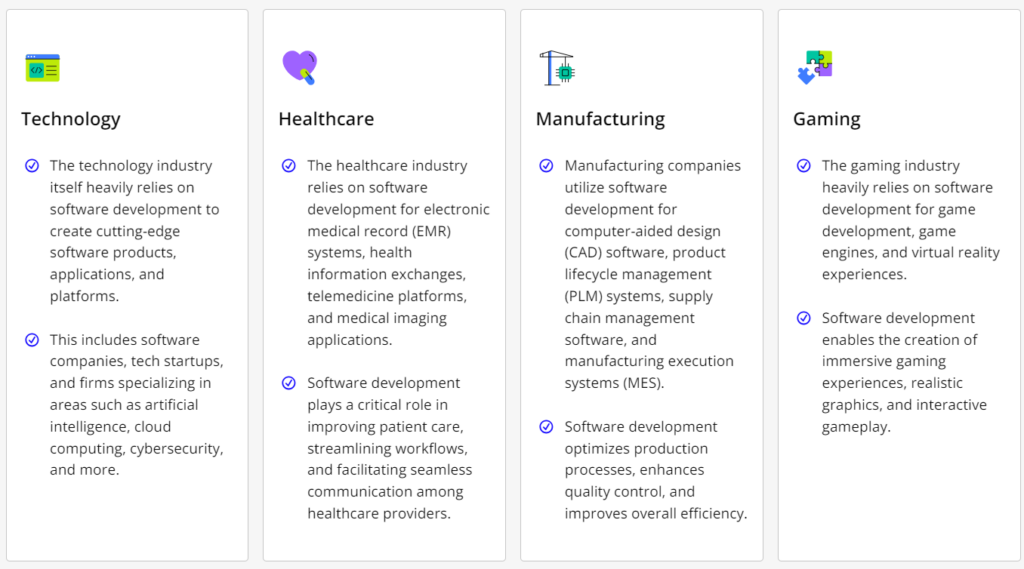
- Choose LinkedIn Learning if you want a flexible, affordable platform for ongoing professional development. It’s excellent for professionals who want to upskill across various domains, particularly in business, leadership, and creative fields. LinkedIn Learning’s integration with LinkedIn profiles makes it a smart choice for those who want to continuously display their learning progress to recruiters and employers.
[button-red url=“https://learning.linkedin.com/” target=”_blank” position=”center”]🔥Try LinkedIn Learning Now[/button-red]
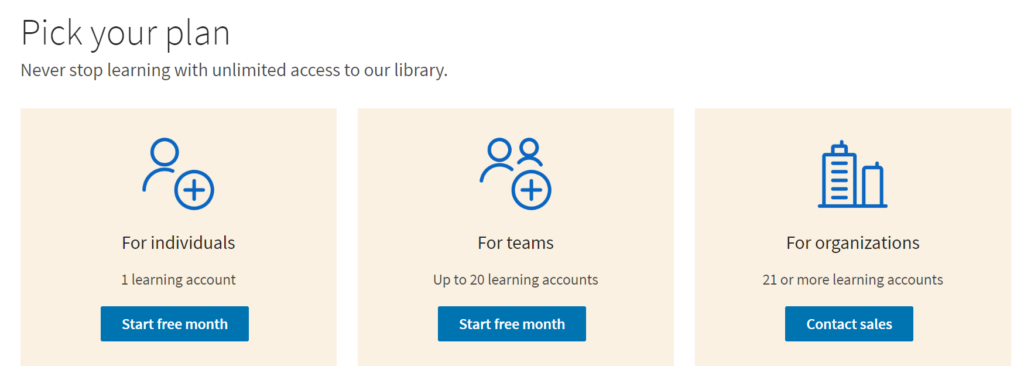
In summary, Udacity provides depth with intensive, career-focused courses in technology, while LinkedIn Learning offers breadth with flexible, on-demand learning in various fields aimed at well-rounded professional development.

